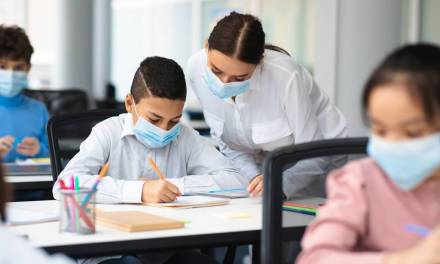An additional £1.4 billion in funding providing children with 100 million extra tuition hours to support catch up programmes in England has been announced. But, will this be enough?
Support for students is vital as they approach a crucial point with their educational recovery after missing out on so much schooling during the pandemic.
The chief architect of the recovery plan, Sir Kevan Collins, resigned highlighting his discontent with the amount being pledged which he said was far behind what he expected.
The academic year is nearing its end and the effects on pupils’ education is clear. According to research for the government by the Education Policy Institute:
“by March 2021, primary pupils were almost as far behind as after the first lockdown and summer holidays last year.
In maths, that meant primary pupils were on average 3.5 months behind where children have been in previous non-pandemic years.”
Economic factors have determined which students have suffered more than others. Students from poorer backgrounds have fallen far behind their ‘better-off’ peers. According to The Guardian:
“Overall, the results show that primary pupils are on average two months behind in GPS and one month behind in both maths and reading. The most disadvantaged children, however, are now six months behind their peers – a month more than they would been before the pandemic.”
Support for students is clearly needed, but how it will be delivered to students hasn’t yet been agreed upon.
Support urgently needed to help a generation of students
Students require constant support with their progression through education, and the pandemic has slowed or even halted their development.
Students need targeted support so they can learn effectively. According to a School Catch-up Survey of students run by the Jack Petchey Foundation:
“The most popular strategy for supporting young people as schools re-open fully from March 8 was a reduced curriculum (55 per cent), followed by small group tutoring (44 per cent), and more resources and text books (42 per cent).”
One-to-one (36%) and mental health (41%) support was also wanted by students to help with their educational recovery. If these aspects were prioritised then students could see their education levels return to normality.
The government has also proposed extending school days by 30 minutes in a bid to help support students recover their lost education. But, according to YouGov polling of parents for The Times:
“Sixty per cent oppose extending hours, while 30 per cent agree.”
Extending school days could provide students with valuable time to retain lost knowledge or get involved in enrichment activities to boost mental and physical health. But, this would only be effective if students were proactive and used the time wisely.
It’s not just younger students who have been struggling. According to research from the Association of Colleges:
“77 per cent of 16- to 18-year-olds are performing below where they would normally be at this point in the academic year, with 75 per cent one to four months behind.”
Students need attentive support and monitoring
Education had to shift to online delivery during the pandemic, meaning students could not always receive the support they required. They also sometimes lacked essential monitoring that institutions would normally implement on-site, resulting in potential safeguarding issues.
A lack of communication between teachers and students has also contributed to children’s lost education during the pandemic.
According to an Education Endowment Foundation (EEF) study:
“23% of teachers surveyed reported phoning pupils at least once a week, while 37% never called them.
24% of schools in the study provided video lessons, while the remaining 76% did not.”
In some instances, students could not always get the support they needed because of a lack of functionality and poor security inherent in some distance-learning services.
When implemented correctly, distance-learning solutions can offer effective short and long-term education to pupils not in school. Choosing the correct online platform could also have ensured accurate monitoring and safeguarding of pupils in a remote learning environment.
Online learning became essential during the pandemic and it still could be helpful now that normality is returning.
EDClass can support your educational recovery
EDClass is a unique, fully-featured online teaching and learning platform with secure monitoring and safeguarding features. EDClass provides more than 12,000 interactive lessons and over 1,000 pre-recorded on-demand videos.
EDClass offers support for students who are failing at school or who have missed out on their education due to lockdowns, medical reasons or exclusions.
The secure EDClass platform offers one-to-one support from teachers and support staff to help with learning and is suitable for students of all abilities and socio-economic backgrounds.
If you would like some more information on how EDClass can support you and help your students catch up on lost education, call 01909 568 338, email mail@edclass.com or contact us here.











